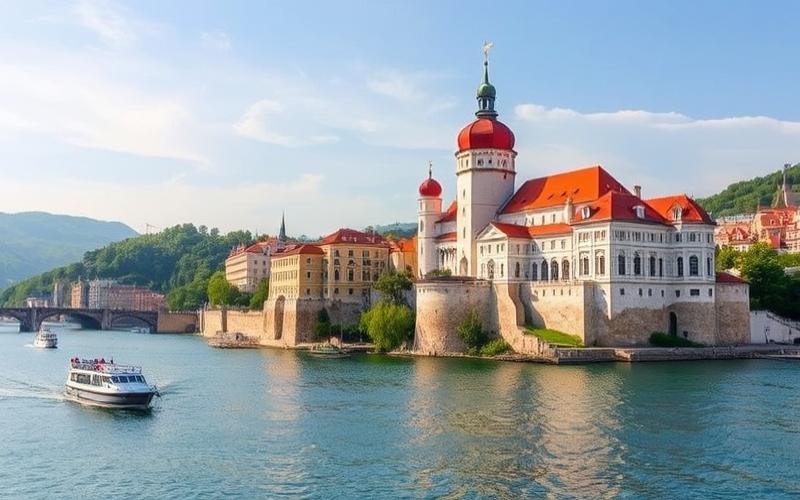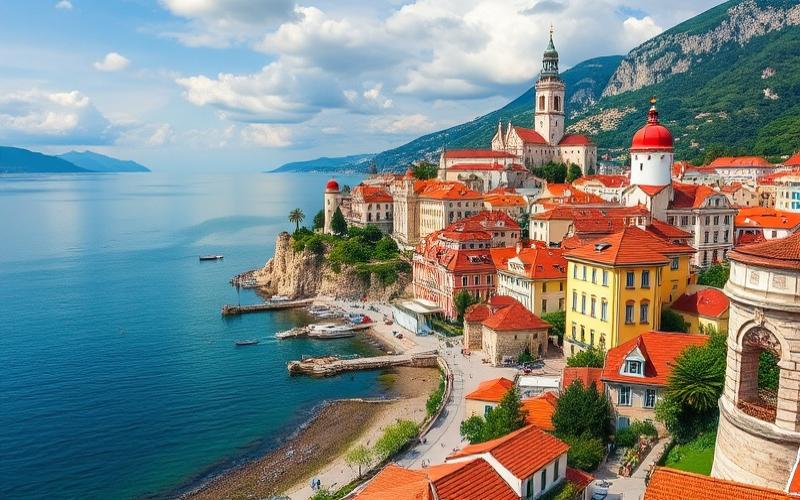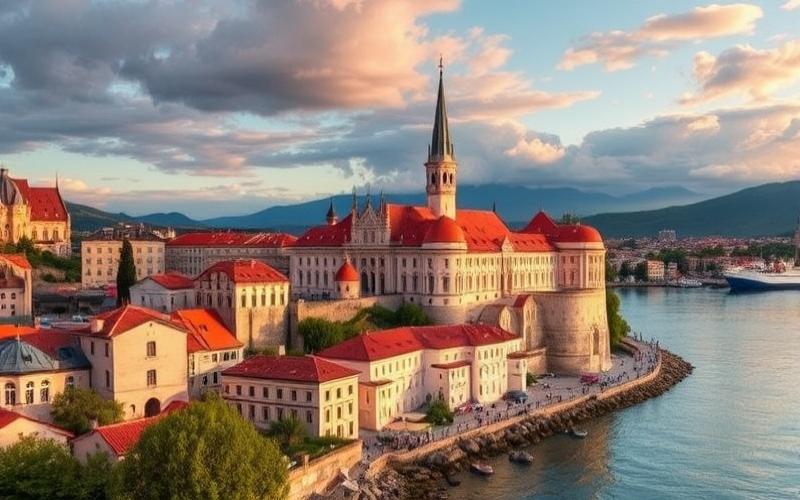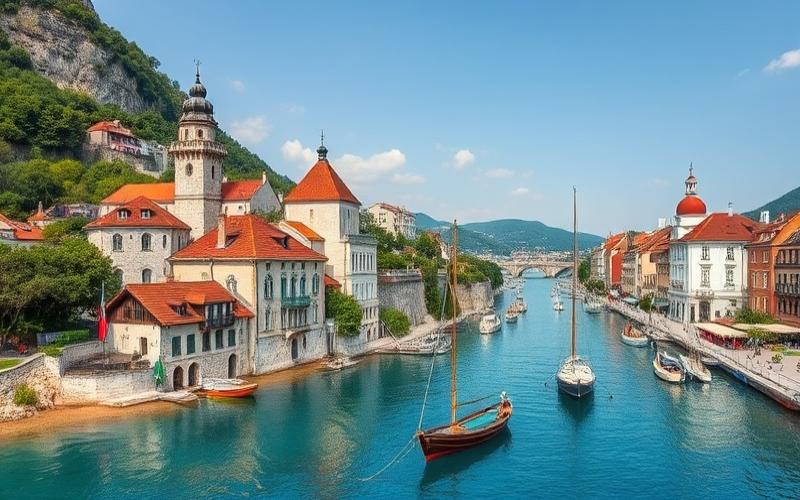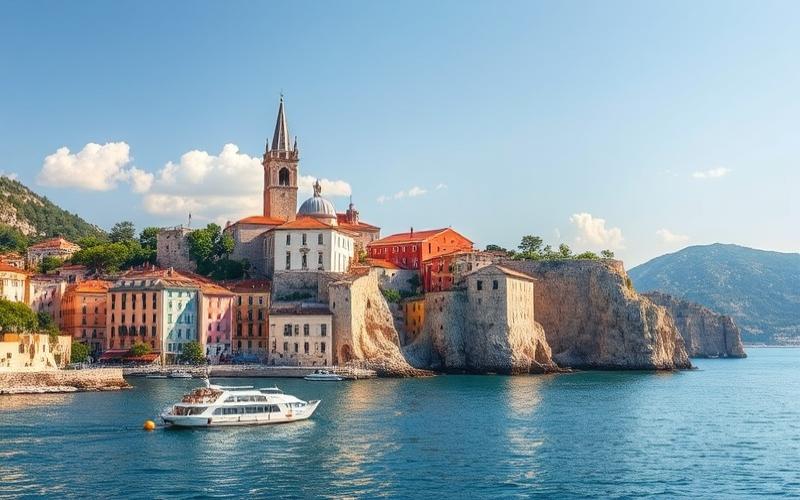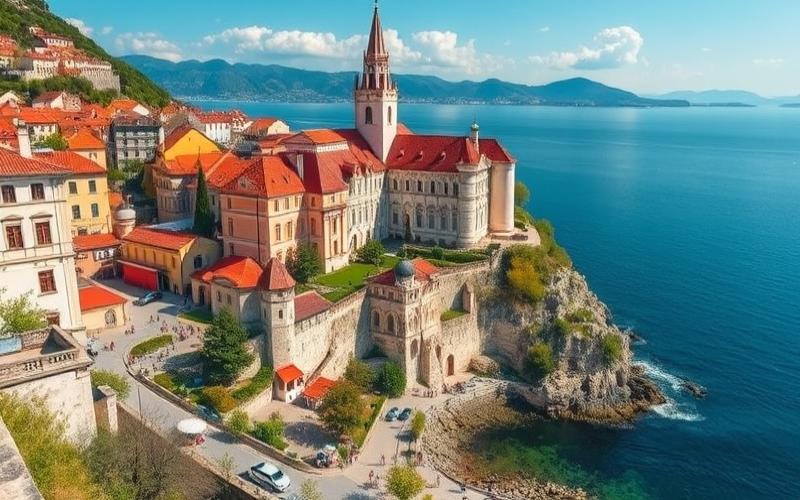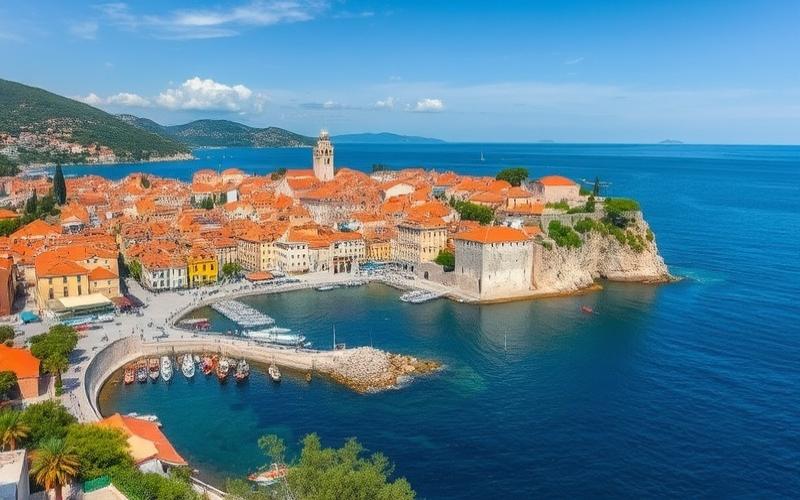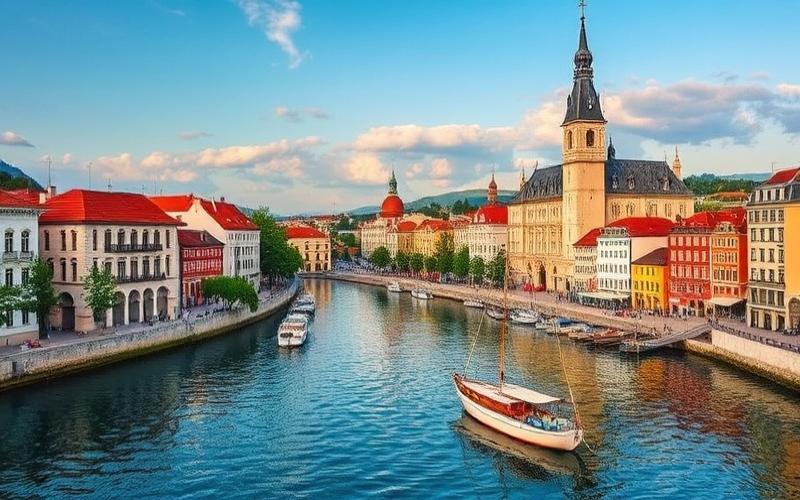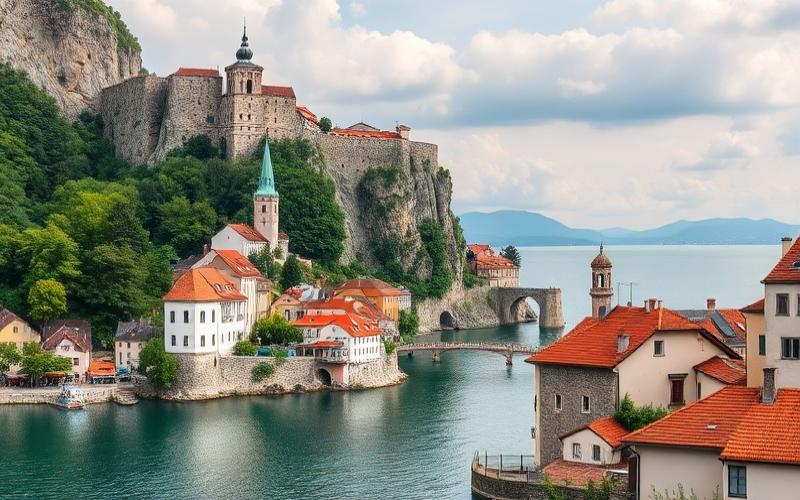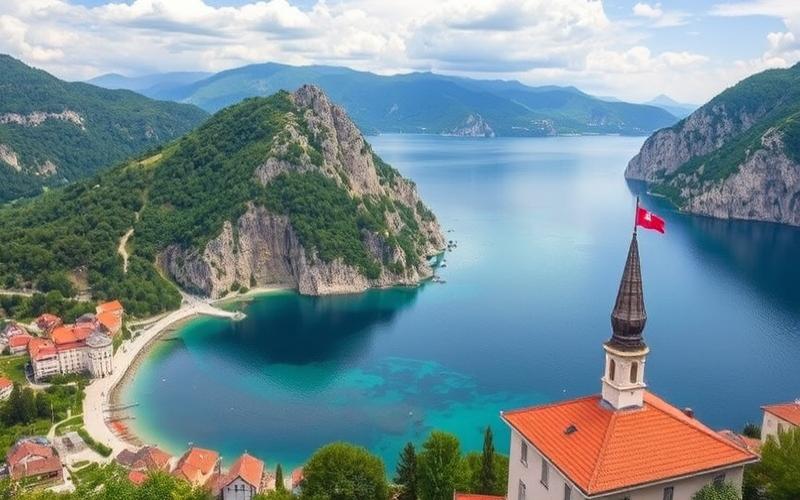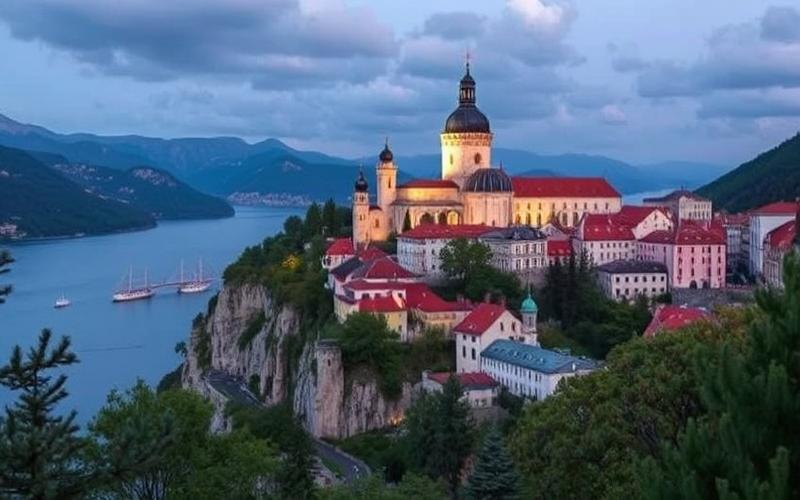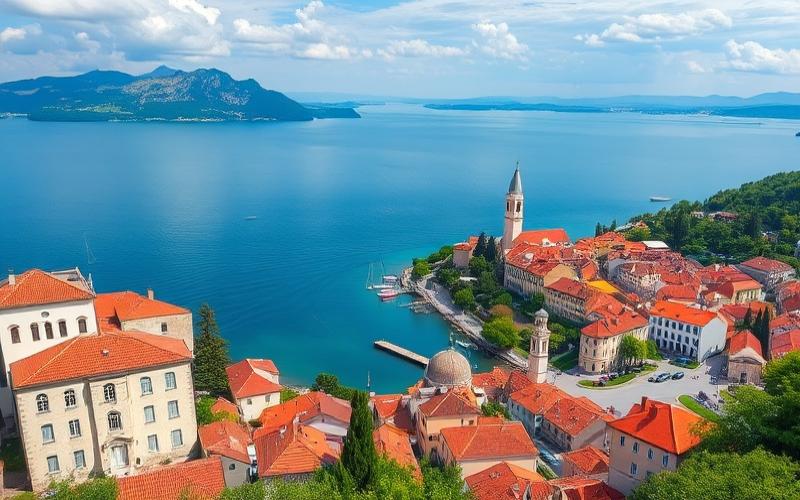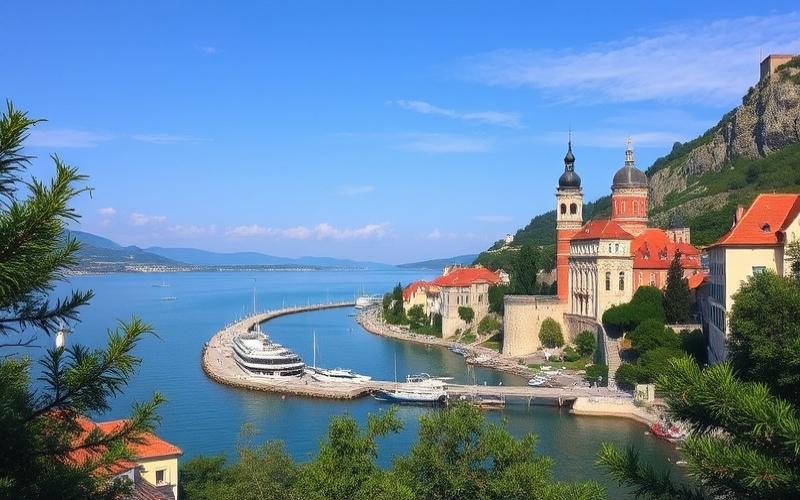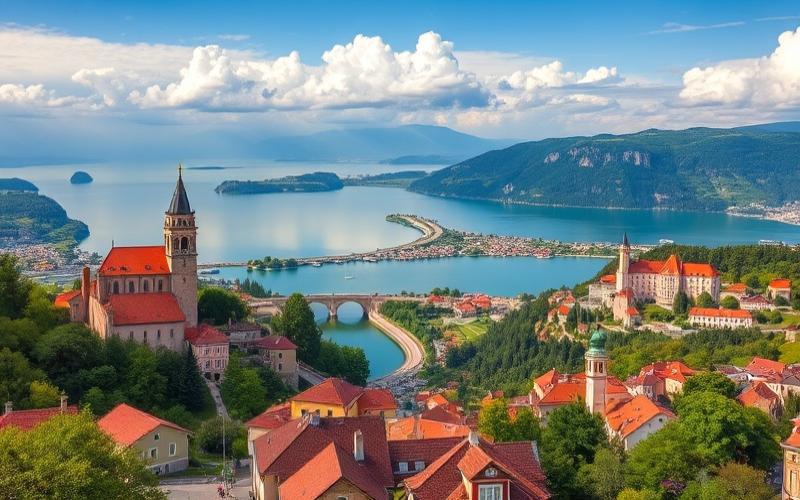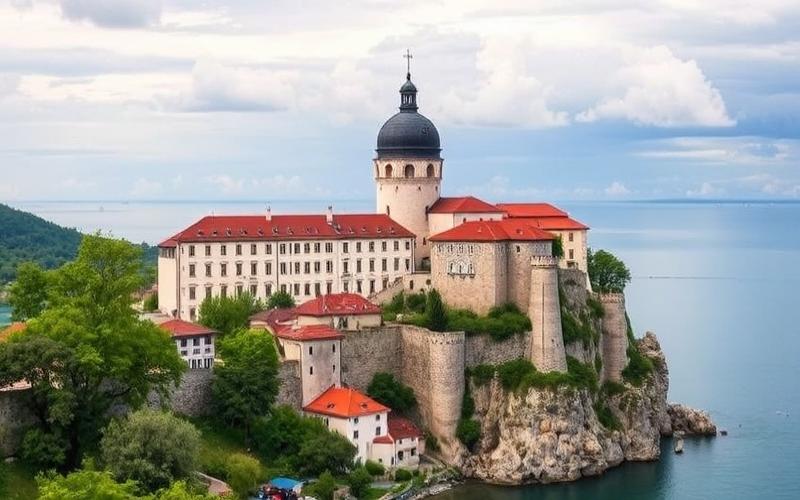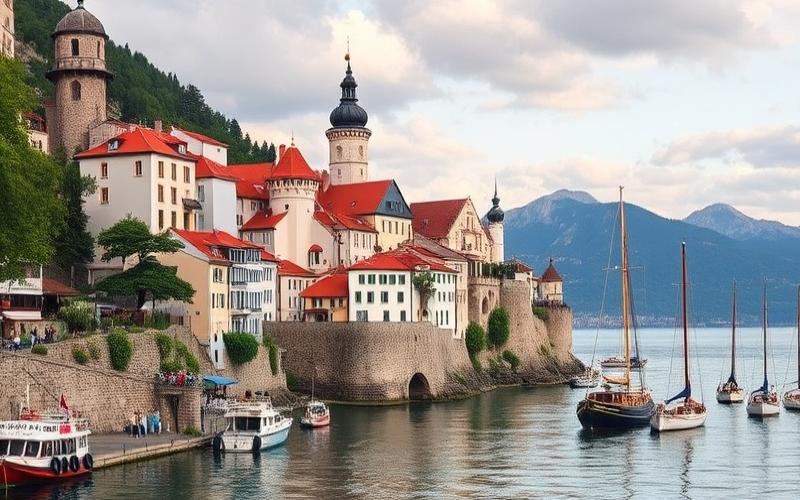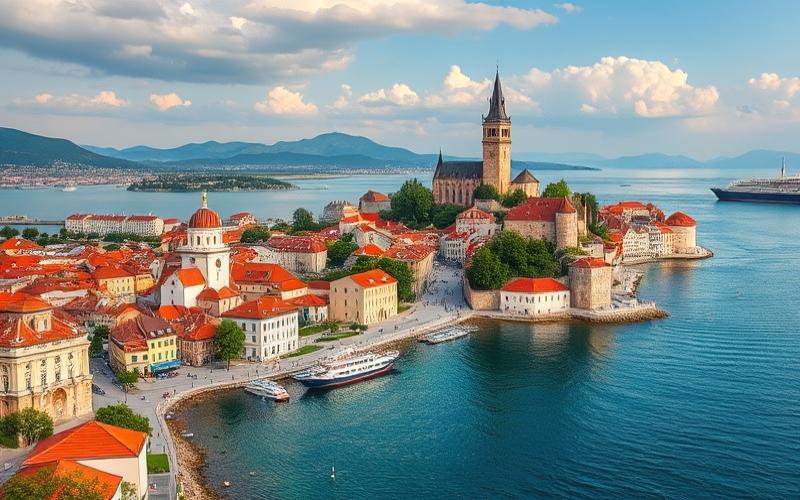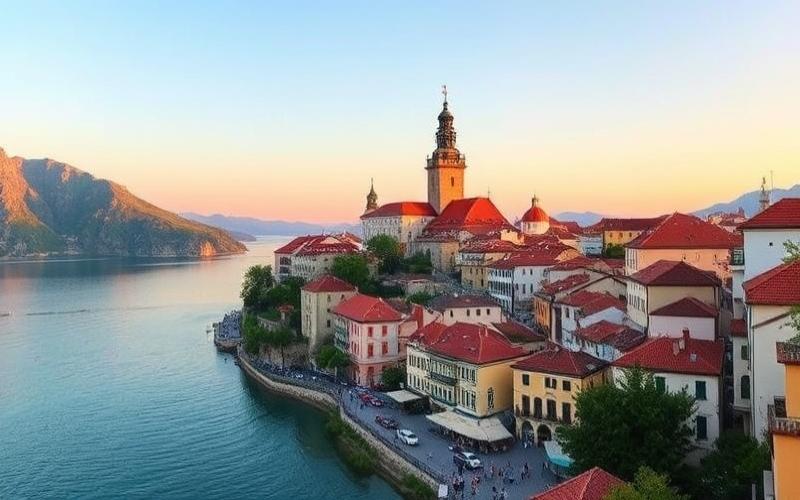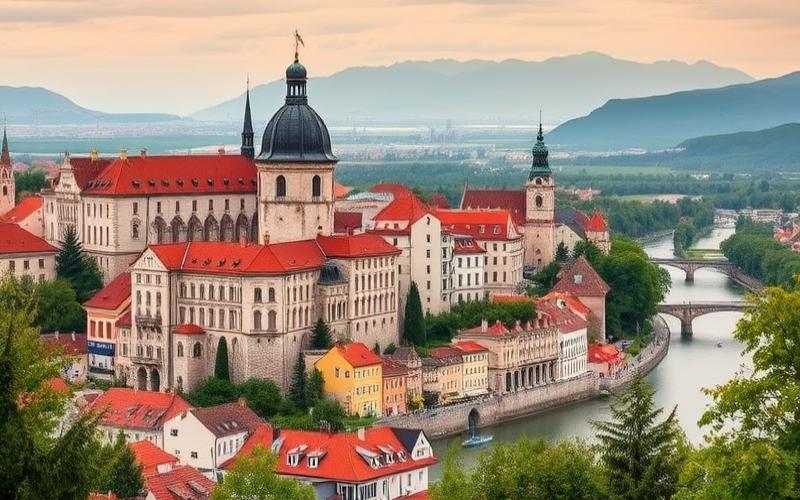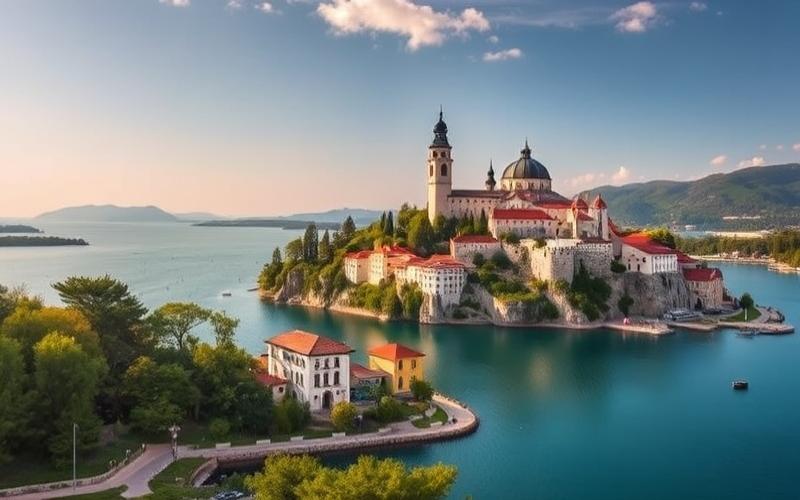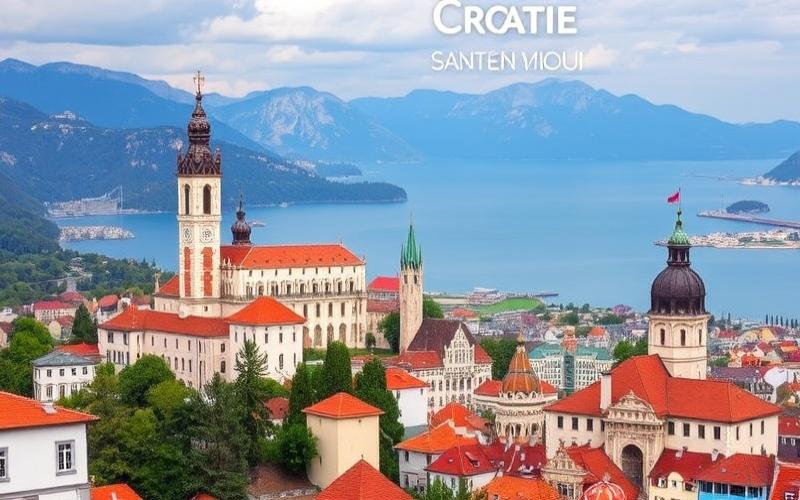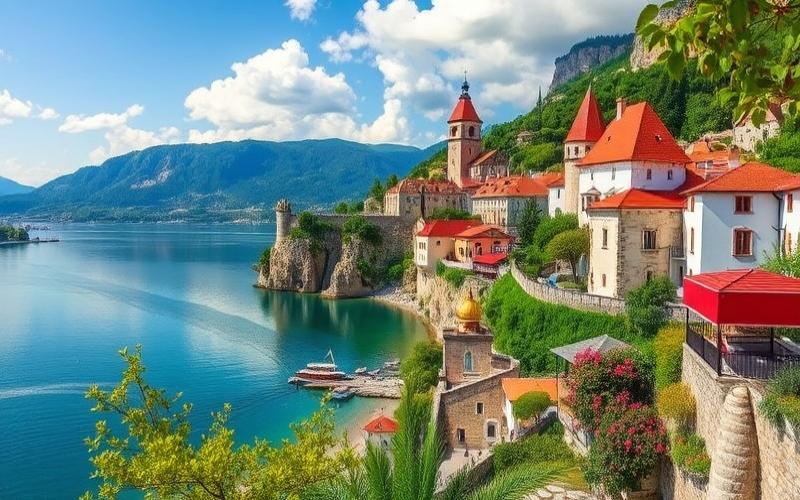
 Published on and written by Cyril Jarnias
Published on and written by Cyril Jarnias
When considering expatriation, the safety of the host country is often a major concern. Croatia, located at the crossroads of Central and Southeastern Europe, is attracting more and more expats thanks to its stunning landscapes and rich cultural heritage.
To fully enjoy this adventure without worry, it’s essential to familiarize yourself with aspects related to safety in Croatia. This article will provide you with practical tips and crucial information to ensure a smooth integration into this enchanting country, where strengthening your sense of security also helps you appreciate the tranquility and unique charm of Croatian life.
Croatia: A Safe Haven for Expats?
Croatia stands out as an attractive and secure country for expats, combining low crime rates, reliable medical infrastructure, and high quality of life.
| Indicator | Level / Description |
|---|---|
| Crime Rate | Low (violent crimes rare, possible pickpocketing) |
| Medical Infrastructure | Public hospitals, private clinics, pharmacies everywhere |
| Emergency Services | European and Croatian emergency numbers accessible |
| Specific Risks | Isolated mined areas, caution recommended |
National Security:
- Low crime rate; violent offenses are rare. Pickpocketing exists mainly in large cities and tourist areas, but vigilance is usually sufficient.
- Identity checks are strengthened at external borders, contributing to territorial security.
- Emergency services are easily accessible, with dedicated numbers and facilitated communication for foreigners.
Healthcare System and Medical Access:
- The Croatian healthcare system is considered reliable by expats, with easy access to public hospitals, private clinics, and pharmacies. Public health insurance (HZZO) covers most needs, supplemented by private insurance if necessary.
- Expats appreciate the ease of registration and medical care.
Expat Experiences and Testimonials:
- Expats report a general sense of safety and well-being, highlighting the warm welcome from Croatians and the ease of integration.
- Local friendliness, community support, and cultural openness facilitate settling in and daily life.
- Main concerns involve vigilance in tourist areas (for minor theft) and attention required in the rare mined areas.
Major Advantages for Expats
- Friendliness of Croatians: reputation for being warm and helpful, promoting integration and a sense of security.
- Natural Beauty: beaches, islands, national parks, and preserved landscapes contribute to well-being and quality of life.
- Government Efforts: digitization of administrative procedures, strengthened border controls, transparent communication about security.
- Culture and Quality of Life: dynamic social life, varied cuisine, cultural events, and relaxed pace of life.
Expats emphasize that Croatia offers a safe, welcoming environment conducive to a peaceful life, with an open culture and exceptional nature.
Points of Caution
- Pickpocketing in large cities and tourist spots.
- Precautions in isolated and potentially mined areas.
- Respect for local rules and administrative formalities (registration with police, up-to-date identity documents).
In summary, Croatia combines safety, friendliness, and quality of life, offering expats a true haven of peace in an exceptional natural setting.
Good to Know:
Croatia offers a peaceful living environment with a low crime rate, easy access to modern medical infrastructure, and efficient emergency services. Many expats praise the friendliness of Croatians and the country’s natural beauty, contributing to a pleasant and secure quality of life.
Essential Tips for Optimal Safety in Croatia
Practical tips for optimal safety during your stay in Croatia:
Vigilance in Crowded Tourist Areas
- Be particularly attentive to pickpockets in cities and heavily visited sites, as well as on tourist beaches. Keep your valuables out of sight and carry only the essentials during outings.
- At the beach, use a waterproof pouch to keep your keys, phone, and money on you or discreetly bury your valuables under your towel. Ideally, arrange for someone to watch belongings while others swim.
- On public transport, keep bags and personal items close to you, closed, and under constant supervision.
Security of Personal Belongings in Temporary Accommodations
- Use the safe in your accommodation if available.
- Never leave your identity documents or valuables exposed in the room, even for a short absence.
- Always lock doors and windows, even during the day.
Precautions When Using Public Transport
- Prefer official companies and avoid unmarked vehicles.
- Watch your luggage, especially in busy bus and train stations.
- Be wary of informal transport offers outside stations or airports.
Staying Informed About Local Conditions
- Regularly check local information on safety and traffic.
- Inquire about weather conditions and natural risks (fires, storms, etc.).
- Register on your embassy’s platform (e.g., Ariane for French citizens) to receive alerts in case of emergency.
Emergency Numbers to Know
| Service | Number |
|---|---|
| General Emergency | 112 |
| Police | 192 |
| Fire Department | 193 |
| Ambulance | 194 |
Also keep your insurance company’s number handy.
Behaviors to Adopt in Unexpected Situations
- Stay calm and follow instructions from local authorities.
- In case of lost or stolen documents, report it immediately to the police and your embassy.
- Never stray from marked trails, especially in rural or mountainous areas, due to residual landmines in some regions.
Travel Insurance
- Purchase travel insurance covering medical care, repatriation, theft, and loss of personal belongings.
- Verify that your insurance covers Croatia and the activities you plan (diving, hiking, etc.).
Familiarization with Local Customs and Laws
- Respect drunk driving laws (low legal limit and zero tolerance for young drivers).
- Adopt respectful attire in public places, especially in religious buildings.
- Never camp outside authorized sites and do not enter abandoned houses or properties.
- Respect signage regarding risk areas (red “MINE” signs, skull symbols, marking tape).
- Avoid loud or disrespectful behavior, particularly in historic centers and places frequented by locals.
Key Points to Remember:
- Never leave marked trails during hikes.
- Keep your personal belongings under surveillance at all times.
- Carry emergency numbers with you and get informed before each trip.
- Check your travel insurance and respect local laws to avoid any problems.
Good to Know:
Be vigilant in tourist areas and secure your belongings in accommodations; in case of emergency, dial 112. Familiarize yourself with local customs and ensure you have appropriate travel insurance coverage.
Practical Tips for Living Serenely in Croatia
Recommended and Secure Neighborhoods for Settling in Croatia
| City | Recommended Neighborhoods | Main Strengths |
|---|---|---|
| Zagreb | Šalata, Maksimir, Pantovčak, Gornji Grad, Donji Grad, Remete | Quiet residential areas, enhanced security, international atmosphere, low crime rate |
| Split | Meje, Bačvice, Veli Varos, Old Town, Lučac-Radunica | Proximity to sea, local ambiance, safety, cultural and nightlife, beaches |
| Dubrovnik | Babin Kuk, Lapad | Guarded residences, beach access, tranquility |
Secure residences (guarded) are highly appreciated by expats for their 24/7 security, services (pool, concierge, green spaces), and community atmosphere that promotes integration.
Overall, Croatia is a safe country with very few neighborhoods to avoid. Even in less affluent areas like Dubrava in Zagreb or the north/east of Split, crime remains very low.
Essential Administrative Procedures
- Apply for a residence permit with the local police (Ministarstvo unutarnjih poslova), usually within 8 days of arrival if planning to stay more than 90 days.
- Prepare necessary documents: passport, proof of funds, health insurance, proof of accommodation.
- Open a Croatian bank account (often required for certain services).
- Register with local health services and apply for a health insurance card if eligible.
- Inquire about work permit procedures if planning professional activity.
Tips for Integrating into the Local Community
- Learning some Croatian basics greatly facilitates contact and shows your willingness to integrate.
- Participate in local events, markets, festivals, or sports activities to meet Croatians.
- Join expat groups on site (Facebook, local associations, Franco-Croatian chambers of commerce).
- Take part in community life: volunteering, clubs, cultural workshops.
Resources for Expats
- Online expat groups and forums (French-speaking and international) to exchange tips and advice.
- Concierge services in premium residences: administrative assistance, event organization, daily life support.
- Chambers of commerce, consulates, and embassies that regularly organize meetings and provide practical information.
Public Transportation
- Developed tram and bus network in Zagreb, local buses in Split and Dubrovnik.
- Tickets purchased at kiosks or directly from the driver.
- Prefer public transport to avoid parking problems and take advantage of low cost.
- Uber and Bolt available in large cities, official taxis easily accessible.
Housing Security
- Choose housing in a residential neighborhood known for its tranquility and security.
- For maximum peace of mind: opt for a guarded residence with video surveillance, access control, connected alarms.
- Check that doors and windows are secure, request intercom installation if absent.
- Ensure the accommodation is well-maintained and electrical/gas equipment complies with standards.
Expanding Your Social Network
- Participate in meetings organized by expat groups or international associations.
- Enroll in language courses or cultural workshops.
- Use common areas of residences (pool, gym, garden) to interact with other residents.
- Explore cafes, bars, and venues frequented by locals.
General Daily Safety Precautions
- Do not leave valuables visible in cars or public places.
- Prefer ATMs located inside banks.
- Keep digital copies of your important documents.
- Respect local rules, especially regarding road traffic and schedules (Croatians are punctual).
- Women can move around safely, even alone, day or night.
- Adopt basic precautions: lock doors, do not disclose sensitive personal information to strangers.
Croatia offers a serene living environment, easy integration into secure residential neighborhoods, and an active expat community for a stress-free daily life.
Good to Know:
Choose to settle in Zagreb or Split, where many neighborhoods offer security and friendliness; join expat groups on social media to integrate more easily and discover the nuances of local public transport for your travels.
Disclaimer: The information provided on this website is for informational purposes only and does not constitute financial, legal, or professional advice. We encourage you to consult qualified experts before making any investment, real estate, or expatriation decisions. Although we strive to maintain up-to-date and accurate information, we do not guarantee the completeness, accuracy, or timeliness of the proposed content. As investment and expatriation involve risks, we disclaim any liability for potential losses or damages arising from the use of this site. Your use of this site confirms your acceptance of these terms and your understanding of the associated risks.

